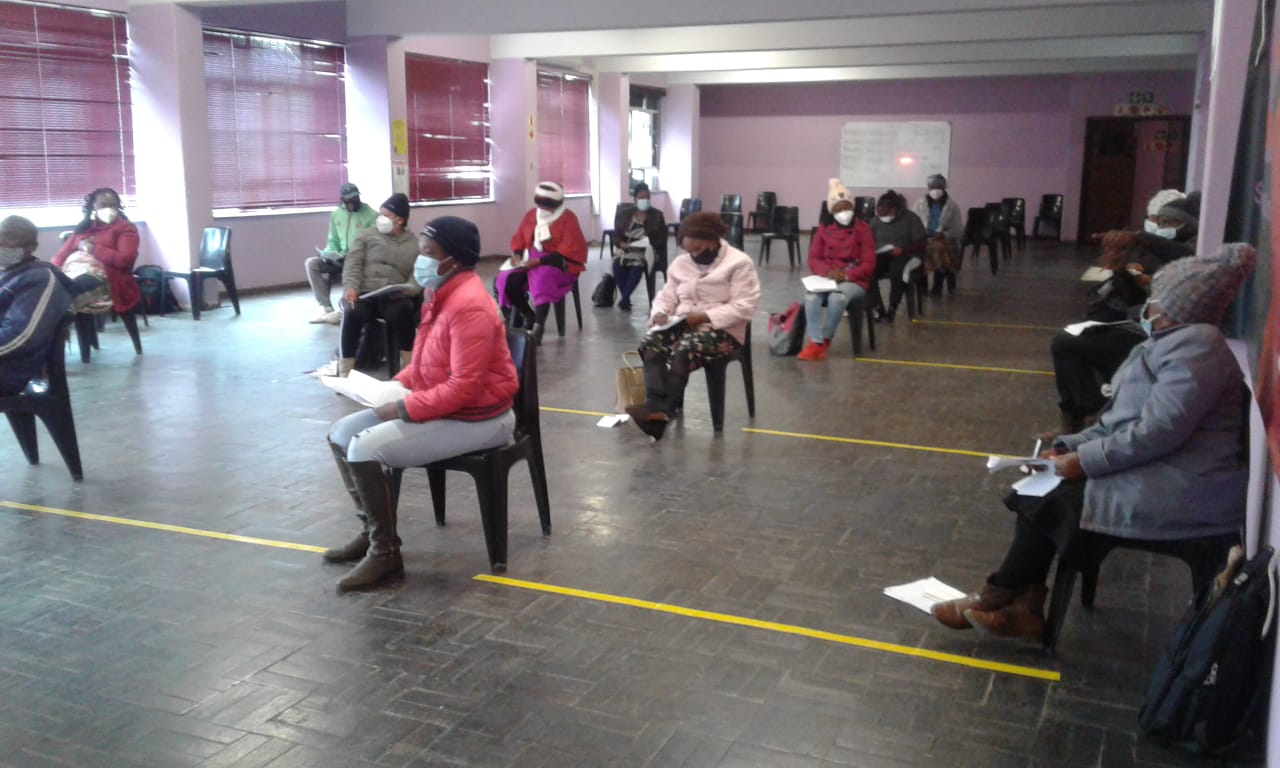Release date: 15 March 2024
For the almost 9 million adults who receive the SRD grant the promise by the President, in his State of the Nation Address (SONA), that the grant would be expanded, brought hope in their daily struggle to have enough food to eat. In his Budget Day speech, the Minister of Finance promised a bigger grant, despite there being no money for the increase in the Social Development budget vote.
Against this promise of an expansion and improvement of the grant, the announcement by the Minister of Finance on Wednesday of an increase of a meagre R20 per month from 1 April smacks of a disconnect with the food precarity millions face and amounts to empty political opportunism. This is neither an improvement nor an expansion as current and draft regulations are and will prevent at least 7 million people every month from receiving the grant.
The newly announced R20 increase is not enough to reverse four years of zero inflationary increases, nor is it sufficient to cover even the minimum energy intake for an individual which was costed by Stats SA at R760 per month for 2023. The current amount of R350 has not been adjusted to keep pace with inflation since the introduction of the grant in 2020. In real terms, this implies a decrease in the grant value individuals are receiving of around 20%.
The increase must account for value lost to inflation since 2020, in other words, an increase which retains the R350 value in real terms. If the grant is increased to be in line with rising prices alone, then the value in 2024 should be between R440 or R467 based on food inflation. This would merely mean a stabilisation of its 2020 value, without any real increase. So, this at minimum requires an increase of R90. Any increase which fails to meet this threshold would be regressive. This is contrary to the Minister of Finance’s acknowledgement that “we are sensitive to the increase in the cost of living”. Even with the R20 increase, recipients are R70 poorer than they were in 2020 because the cost of living is not being factored in.
This speaks to the austerity budget that undermines constitutional obligations The Minister of Finance allocated a budget of R44 billion in anticipation of 10.5 million beneficiaries qualifying for the grant in 2022, which was reduced in nominal terms to R36 billion in 2023 and now further reduced to R33,6 billion in 2024. This begs the question of how the grant amount and access to the grant will be improved with a further reduced budget. We are concerned that the meagre increase will encourage government to further limit who qualifies for this grant given the budget allocation, rather than to ensure that all those who need the grant can access it. The budget allocated determines the number of applicants who qualify. Given the further constrained budget, the intended consequence of being exclusionary by default will continue to limit who will qualify for the grant despite the need.
The increase should at least partially compensate beneficiaries for the loss in value of the grant which they have experienced over the last four years. Calculating the loss of value over four years is a proxy because while the great majority of beneficiaries may have received the grant for four years, not all of them have – further, many (at least two and a half million) beneficiaries who were benefiting by March 2022 were excluded from the grant after the new iteration came into effect.
The SRD grant has a high rate of exclusion errors, estimated at approximately 50% of eligible persons. These exclusion errors result from barriers to application, approval, and appeal for the grant, which are systemic, and derive directly from the inadequate budget allocation for the grant. Government agencies have conceded that they privilege the reduction of inclusion errors over the reduction of exclusion errors. This approach directly leads to a higher rate of exclusion and undermines the Constitutional obligation on the government to progressively realise the right to social assistance.
Government has committed itself to the introduction of a Universal Basic Income when the government can afford it. There have been over 50 pilots of UBI programmes globally that demonstrate that a UBI generates economic growth and jobs, as well as meeting basic needs. It would also meet the state’s constitutional obligations. The empirical evidence shows that growth follows the UBI, not the other way around. It is time the state is led by evidence, not its ideological opposition to inclusive social security.
We call on the Minister of Social Development and the Presidency to reject this unilateral decision by the Minister of Finance and to hold him accountable to the promise of a better life for all.
[ENDS]
For media enquiries please contact:
- Black Sash | media@blacksash.org.za
- Bukelwa Hans | GRAPE | 082 651 5070
UBIC is comprised of the following organisations:
- Alternative Information and Development Centre (AIDC)
- Black Sash
- Basic Income Earth Network (BIEN) Africa UBI Observatory
- Children’s Institute, UCT
- Congress of South African Trade Unions (COSATU)
- Global Reformed Platforms for Engagement (GRAPE)
- RightfulShare An Income Movement
- Institute for Economic Justice (IEJ)
- #PayTheGrants (#PTG)
- Social Policy Initiative (SPI)
- Women on Farms Project
- Youth Lab
This statement was released by Universal Basic Income Coalition on 15 March 2024.


 Download PDF
Download PDF
